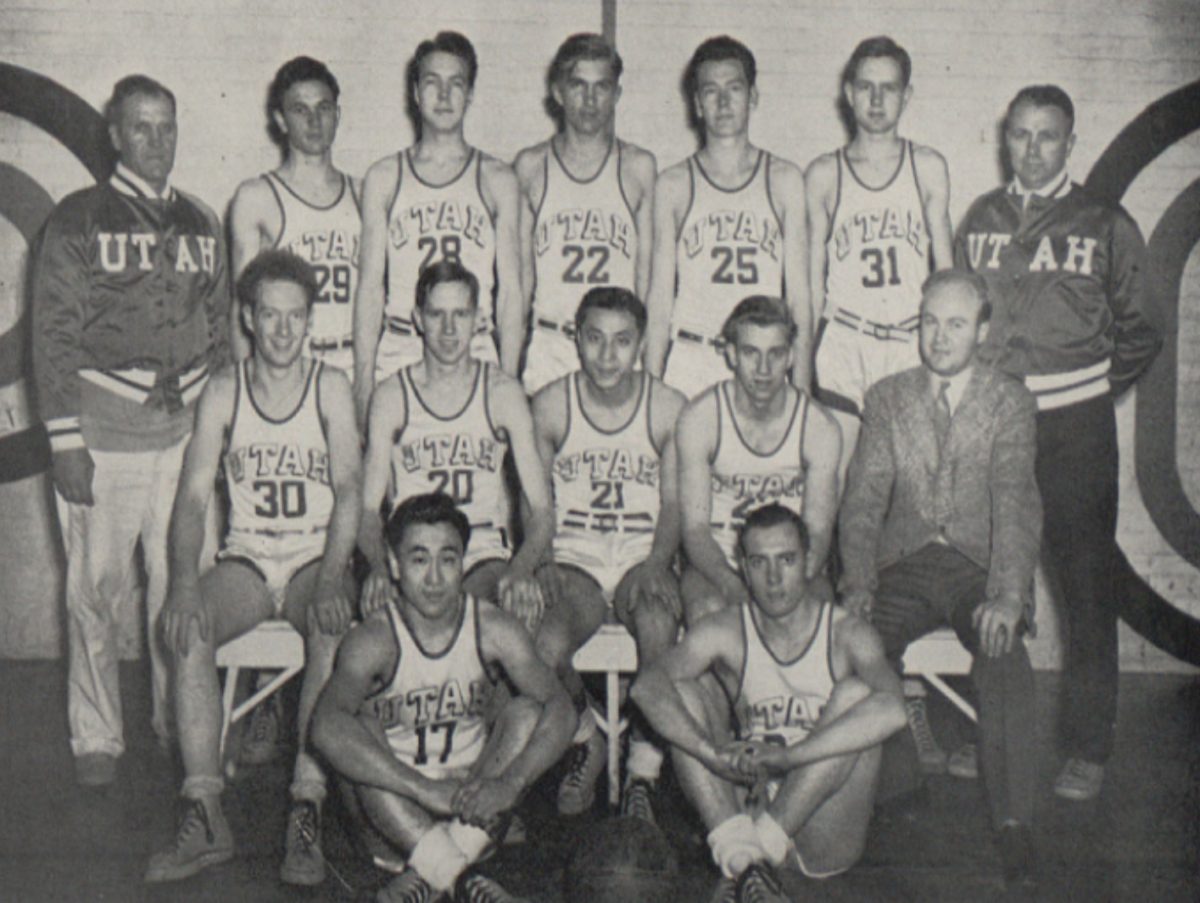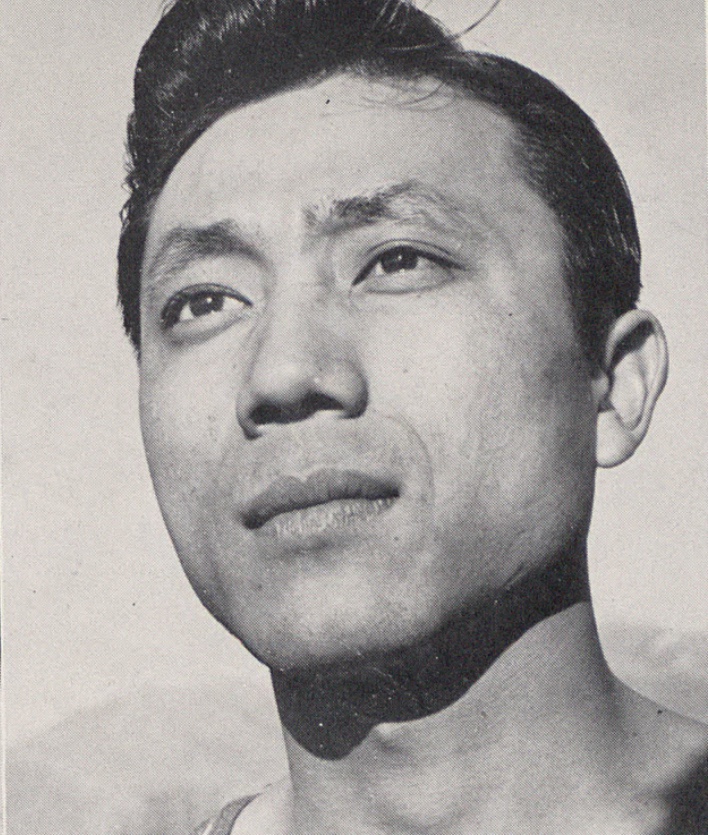The University of Utah has a rich history of impressive athletes, including Olympic medalists, Super Bowl champions and a first-overall draft pick in both the NFL and NBA, to name a few. But not many athletes from the U have had quite the impact that Wataru Misaka did.
More commonly known as Wat, Misaka is famous for being the first non-white player in the National Basketball Association, then known as the Basketball Association of America. He broke that barrier in 1947 when he debuted for the New York Knicks, just months after Jackie Robinson famously broke the Major League Baseball color barrier. Misaka’s story, however, is much more than that.
Misaka was born on Dec. 21, 1923 to Japanese parents and grew up in Ogden, Utah. Before coming to the U, he played two seasons of college basketball at Weber College (now Weber State University). After a successful career at Weber College, including being named their Athlete of the Year in 1943, he transferred to the U.
Utah was one of the best teams in the country during Misaka’s career here. Led by head coach Vadal Peterson, the Utes finished 18-3 in the 1943-44 regular season. After losing to Kentucky in the National Invitation Tournament, Utah was given a unique opportunity to continue playing and join the NCAA Tournament.

Utah had originally declined the invitation to the NCAA Tournament because the NIT was viewed as more prestigious at the time. After Arkansas was forced to withdraw from the NCAA Tournament due to a car accident, Utah was allowed to take their spot. The team made the most of this opportunity, defeating Dartmouth 42-40 in the championship game. As a result, the 1943-44 University of Utah men’s basketball team are recognized as national champions.
After the season, Misaka left the team for two years to serve in the U.S. Army. His willingness to serve is remarkable, considering that the United States was imprisoning people of Japanese descent during this time. After the bombing of Pearl Harbor on Dec. 7, 1941, many Japanese Americans were forced to move to the ten internment camps set up along the Pacific Coast. As Misaka and his family were from Utah, they were spared from internment, but it still was a very difficult time.
“I was a man without a country,” Misaka told the U years later. “To the Japanese I was an invader. Americans didn’t trust me because I was Japanese.”
When Misaka returned from his military service, he rejoined the Utah men’s basketball team for one final collegiate season. After another strong season, Utah was once again invited to the NIT, which at the time only consisted of eight teams. Misaka and Utah won the 1947 tournament, defeating Kentucky in the championship game by a slim margin of 49-45.
This was a fitting end to Misaka’s college career, considering he won championships during both his time at Weber College and the U. The championship games of the 1944 NCAA Tournament and the 1947 NIT were played at the previous Madison Square Garden in New York City, the home arena of Misaka’s future team, the New York Knicks.
After Misaka wrapped up his collegiate career, he was selected by the Knicks in the 1947 BAA Draft. This move made Misaka the first non-white player in professional basketball history.
Misaka breaking the barrier barely received any attention at the time.
“It wasn’t a big thing,” Misaka reflected in a 2008 interview with the Salt Lake Tribune. “Maybe nobody knew that there was any history being made?”
The Knicks cut Misaka after just three games. It’s impossible to say for sure how much his ethnicity played a role in the decision to cut him, especially because he was incredibly short for basketball standards, standing at 5 feet 7 inches. Misaka remains one of the shortest players in league history to this day.
“He got so much out of what he had, but to put someone in that size is difficult,” said Carl Braun, one of his Knicks teammates, in an interview with the New York Times.
After his time with the Knicks, Misaka returned to the U and received an engineering degree. He passed away on Nov. 20, 2019 at the age of 95. Misaka left behind an incredible legacy as the man who broke the color barrier in professional basketball. On Jan. 22, 2002, during a home game against the USC Trojans, the University of Utah honored Misaka and hung his No. 20 jersey in the rafters of the Huntsman Center.



